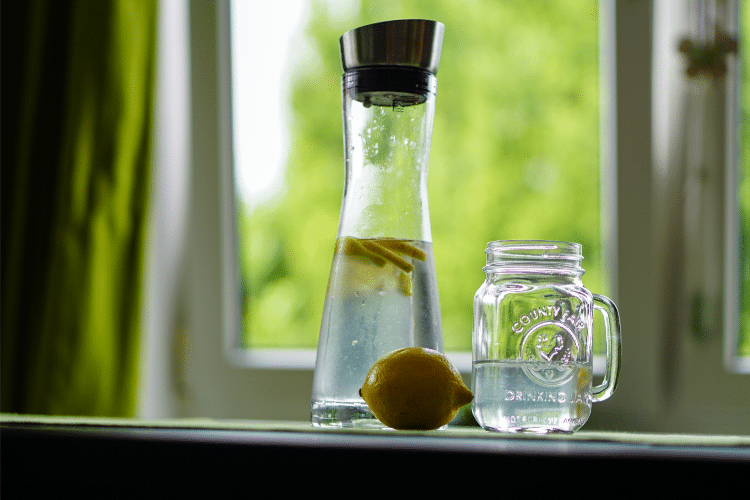
The Dirty Little Secrets That Your Water Is Trying to Tell You
You go to the trouble and expense to take herbal supplements, shop organic for your dinner, cram your workouts into packed days, and cover your face and social distance. You may be doing all this for your personal health, and, for your family, but don’t forget about the need to pay close attention to your water!
Table of Contents
What’s living in your tap water?
In fact, just because your household water is clear, doesn’t necessarily mean that it’s clean. Consider this “dirty little secret” list of contaminants that may now be happily living in your tap water:
Microorganisms
E. coli, Giardia noroviruses
Unwanted pharmaceuticals
Estrogen, antibiotics, and more
Organic chemicals
Atrazine, glyphosate (Roundup), trichloroethylene, and tetrachloroethylene
Inorganics
Lead, arsenic, nitrites, nitrates
Sewage
Rare, but it happens. This contamination usually occurs because of natural or manmade disasters
The Environmental Protection Agency (EPA) sets the enforceable drinking water standards for public water systems. These standards include maximum contaminant levels and treatment technique requirements for more than 90 chemical, radiological, and microbial contaminants.
However, approximately 2,000 new chemicals are introduced each year and the EPA cannot keep up with setting standards for everything that is assaulting our environment.
However, if these contaminants remain untreated, they can still enter your home and cause a whole host of problems that wreck your health. Chemicals in your drinking water can cause skin discoloration, and even more severe problems such as damage to the reproductive or other organs.
They can even cause cancer and other chronic conditions. Microbes such as viruses, bacteria, and parasites can also cause all kinds of serious problems especially in people with weakened immune systems.
Signs that something is wrong with your water
Early signs that something is wrong with your water include diarrhea, nausea, intestinal or stomach cramping, aches and pains, and dehydration. But even these symptoms may not show up immediately.
It may take a while for the contaminants to build up and show up depending on your age, physical condition, and overall health.
How can you purify your water?
Furthermore, if you or your family are experiencing any of these below issues with your tap water, then it’s time to look into a water filter:
- Fishy, oily, bitter, or metallic taste
- Chlorine smell – does your water taste like a swimming pool? Municipal water providers use chlorine to remove bacteria and harmful organisms, but sometimes they use too much!
- Sulfur smell – does your water smell like rotten eggs? There’s too much sulfur in it?
- Flat baked goods – too much chlorine is killing the beneficial bacteria (yeast) that makes your dough rise
If your water appears cloudy or foamy, get it tested. Harmful bacteria could be to blame.
If there are dirt and sediment in your water, call your water provider and complain. While there may not be anything particularly dangerous in it, who wants to drink that? Consider also having the water tested.
If you have spots and stains on your glassware and plumbing, your water is trying to tell you it’s too hard. It has a high percentage of dissolved minerals like calcium and magnesium. Hard water can shorten the effective lifespan of your hot water heater, boiler, and other appliances.
Another problem with hard water is dry skin and hair. The minerals in hard water can leave a film that builds up causing itchiness and breakouts on your skin, and dull, limp, and super dry hair. It can even cause discoloration of your hair.
How to solve issues associated with hard water
To solve issues associated with hard water, install a water-softening system to remove excess minerals.
Does it seem like your water pressure is lower than usual, or slower than it should be? You may have clogged pipes. This can occur because of hair, grease, and other items. But it can also mean your pipes have become corroded and have filled up with sediment and scale. Time to call the plumber so he/she can advise you on how to best address this issue.
Your water can be a difficult problem to fix, and it may take a while to “find the blame”. Is it your home’s pipes? The supply line from the street to your house? The city’s water main coming into your neighborhood, or the water treatment plant?
What can you do between the time the problem is discovered, and when it’s resolved?
Buying any old bottled water is not the answer. Read the label. Where does it come from? If it reads “municipal sources,” as with many brands, you may as well just turn on your kitchen tap. That’s all that some bottlers do.
They have just awarded you with the opportunity to pay more for the same water that comes out of your tap, and, add another plastic bottle to our burgeoning plastic waste problem.
Also, avoid small-time, unknown, or local or regional labels on your bottled water. If you get sick from their water and a lawsuit ensues, they can just close down the business and start over under a different name.
To be somewhat safer with bottled water, buy well-known national brands. They have more to lose in reputation and in the price of their stock if you get sick.
What you can do is buy water that says “purified” or “distilled.” Purified means the water has been run through a cleaning and treatment process. Distilled means the water has been heated to boiling and then the collected steam is condensed back into a liquid. This process removes impurities and minerals from the water.
Bottom Line
Your water – may seem like a benign, silent resource. But actually, it can tell you volumes. You just have to pay attention!
Need help finding a qualified, certified lab to test your water? Try: https://www.epa.gov/dwlabcert/contact-information-certification-programs-and-certified-laboratories-drinking-water#state-labs






